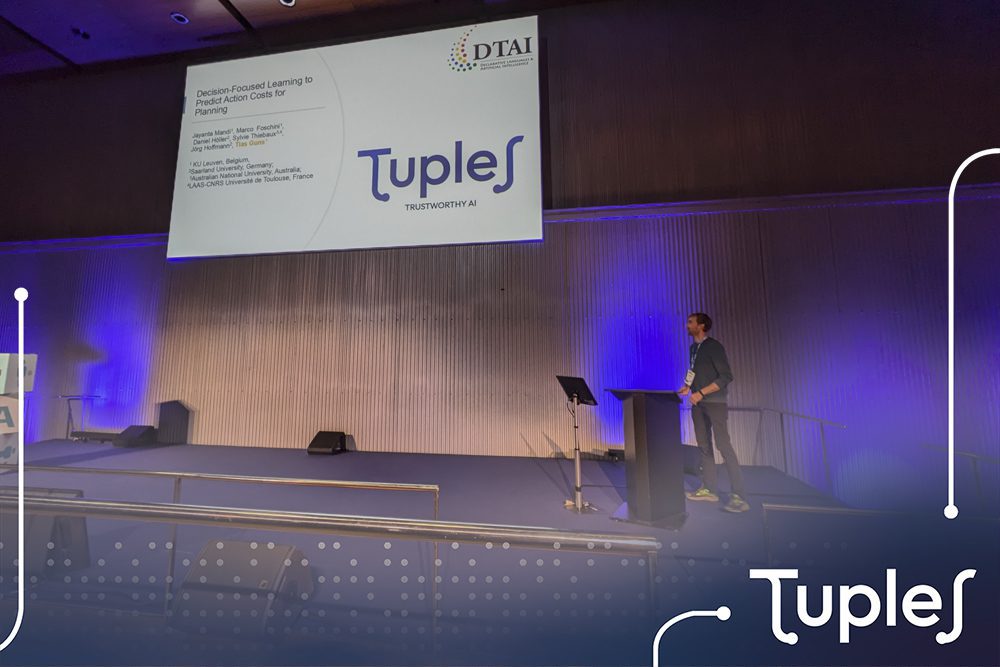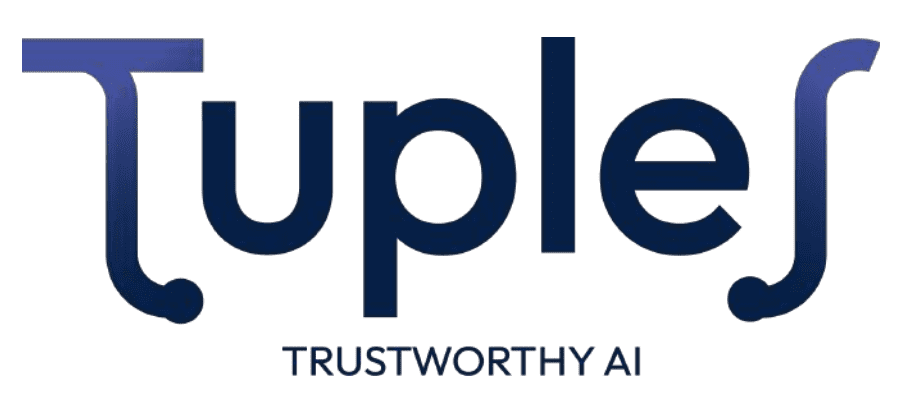TUPLES AT ECAI 24
-
28/10/2024
-
NewsNews
Big presence for TUPLES at ECAI2024! Our teams presented pioneering work in AI decision-making, from explainable constraint solving to safe planning verification

The TUPLES project made a powerful impact at ECAI 2024, presenting several key papers focused on advancements in AI for planning and decision-making. Held in Santiago de Compostela, Spain, from October 19-24, ECAI (27th European Conference on Artificial Intelligence) brought together leading AI experts from across the globe.
Here are our contributions that showcase the TUPLES project’s pursuit of trustworthiness in AI:
- Tutorial on Explainable Constraint Solving – A Hands-On Tutorial
Prof. Tias Guns, Dimos Tsouros and Ignace Bleukx gave a tutorial on ‘Explainable Constraint Solving – A Hands-On Tutorial’, offering valuable experience to the participants. Find more details in their repository. - Paper: Decision-Focused Learning to Predict Action Costs for Planning
Tias Guns (KU Leuven) presented this collaborative research with Jayanta Mandi, Marco Foschini (KU Leuven), Daniel Holler, Joerg Hoffman (USAAR), and Sylvie Thiebaux (ANITI). The paper explores decision-focused learning as a means to predict action costs, bridging predictive modeling and operational planning for more effective AI-driven decisions.
Read the paper here. - Paper: Iterative Oversubscription Planning with Goal-Conflict Explanations
Rebecca Eifler presented this paper, co-authored with Daniel Fišer, Aleena Siji, and Jörg Hoffmann. Their work addresses the complexity of oversubscription planning by developing goal-conflict explanations and using policy-guided approximations to scale solutions.
Dive into the research.
• Paper: Safety Verification of Tree-Ensemble Policies via Predicate Abstraction
Chaahat Jain’s presentation on safety verification introduces a method for verifying complex tree-ensemble policies with predicate abstraction, authored alongside Lorenzo Cascioli, Laurens Devos, Marcel Vinzent, Marcel Steinmetz, Jesse Davis, and Jörg Hoffmann.
The full paper is accessible here.
Congratulations to all our researchers who contributed to bring their knowledge and our project to the ECAI audience.
